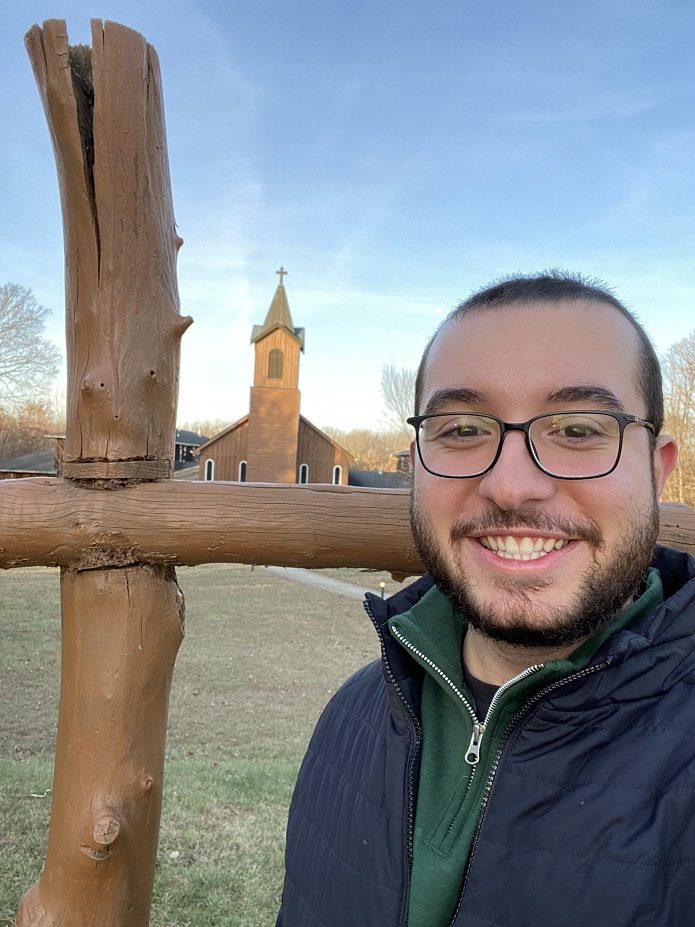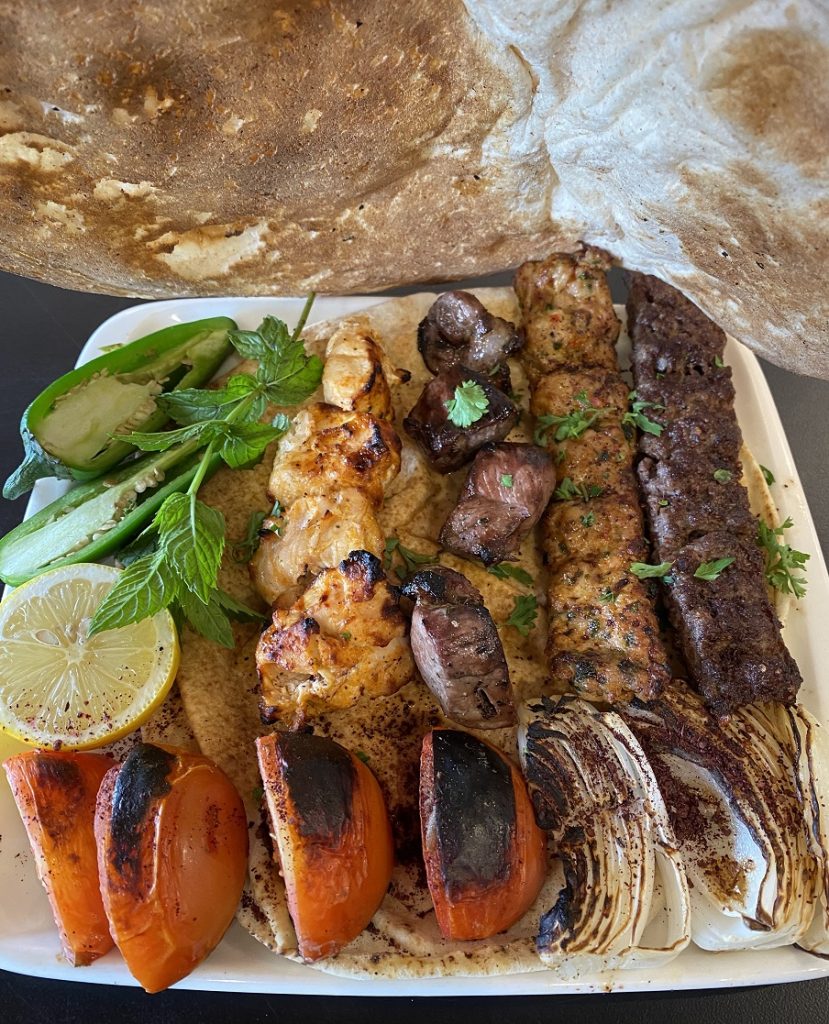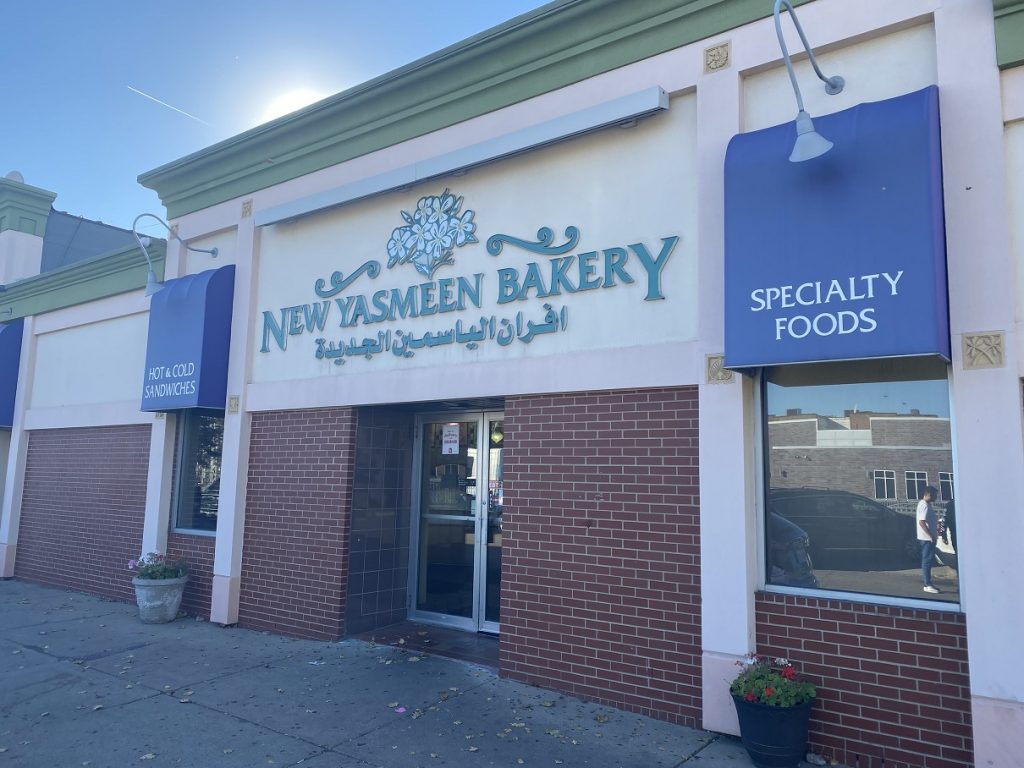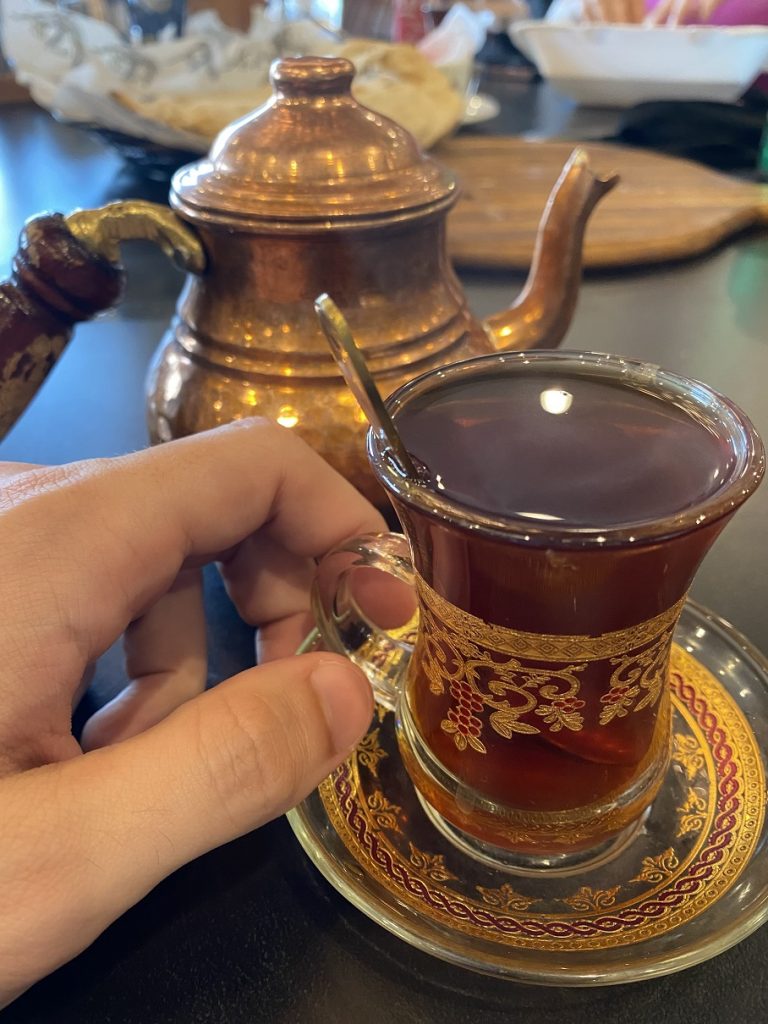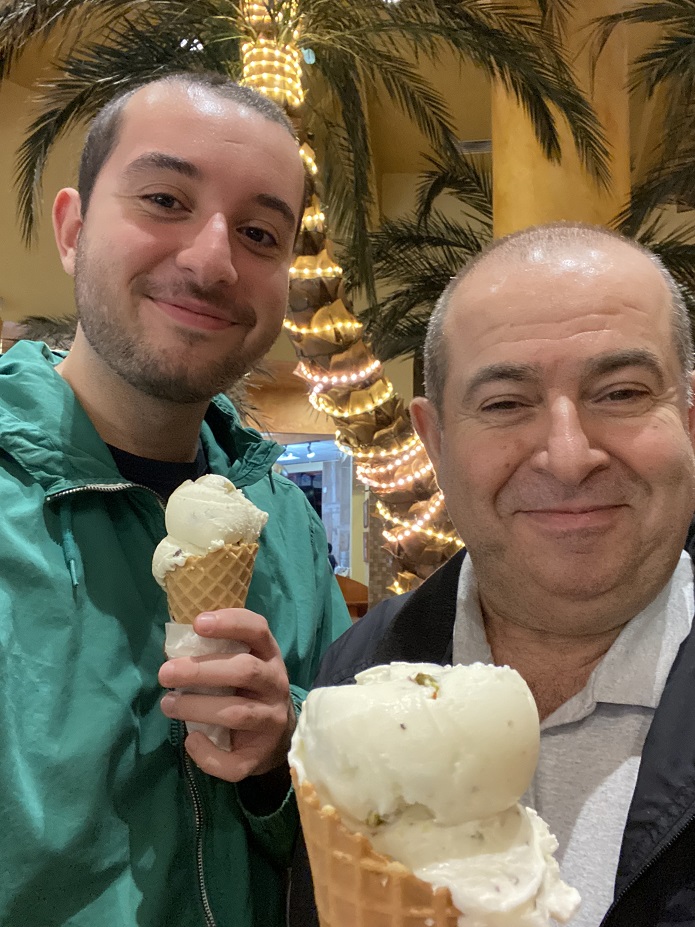People are shocked when I tell them my dad will happily drive 5 hours just to have a good meal. Even my mom and I can’t believe it’s something he’s so willing to do in this age of Uber Eats and instant gratification. But he won’t do this for just any cuisine. On random Saturdays throughout the year, after a stressful week of work, my baba will make the 5-hour commute from our suburb of Chicago to the suburbs of Detroit to eat a few good meals at authentic Middle Eastern restaurants. He will then contentedly drive 5 hours back, bringing back with him trays of food for our family and close friends to enjoy the rest of the week.
My name is Danny Tabet, and I am a graduating junior majoring in philosophy and minoring in Catholic Studies. My dad left Lebanon after fighting in the Lebanese Civil War and has only gone back to his homeland once during the almost 40 years he has been in the States. My dad came to Chicago for a better life for himself and his future family. He found community with other Lebanese people at Our Lady of Lebanon church in the suburbs, and he met my mom here in Chicago. However, the Arab community in Chicago is quite small compared to other areas in the US. Besides being known for the car industry and the Ford Museum, Detroit has been called the Middle Eastern capital of the US.
Since I was little, I remember my dad visiting Detroit to immerse himself in the larger Arab community there, where he feels like he is at home. I had only been to Detroit once when I was little and I don’t remember it at all, so recently, my dad offered to take me and three of my Lebanese friends to Detroit to show us Middle Eastern culture in the US, and why he loves going there so much. Detroit was a bustling city in the early 1900s due to the car industry. Many Middle Eastern people immigrated to Detroit at that time for the many opportunities that were available. That community has grown over time, and Detroit still boasts having the largest Arab American population. Metro Detroit is split into two sides: East and West of Woodward Avenue. The West side suburb Dearborn in particular, as well as Dearborn Heights next to it, are densely populated by the Arab American community. This is where one can find the Arab American National Museum. Halaal restaurants, mosques, Middle Eastern shops, and Arab-owned businesses line Warren Avenue. It is common to see Arabic writing next to English on signs over storefronts, which to native Arabic speakers like my dad, makes them feel at home in the diaspora. His favorite places to visit in this area, places which I can also vouch for, are Khalaf Grill, Al-Ameer Restaurant, New Yasmeen Bakery, and Shatila Bakery.
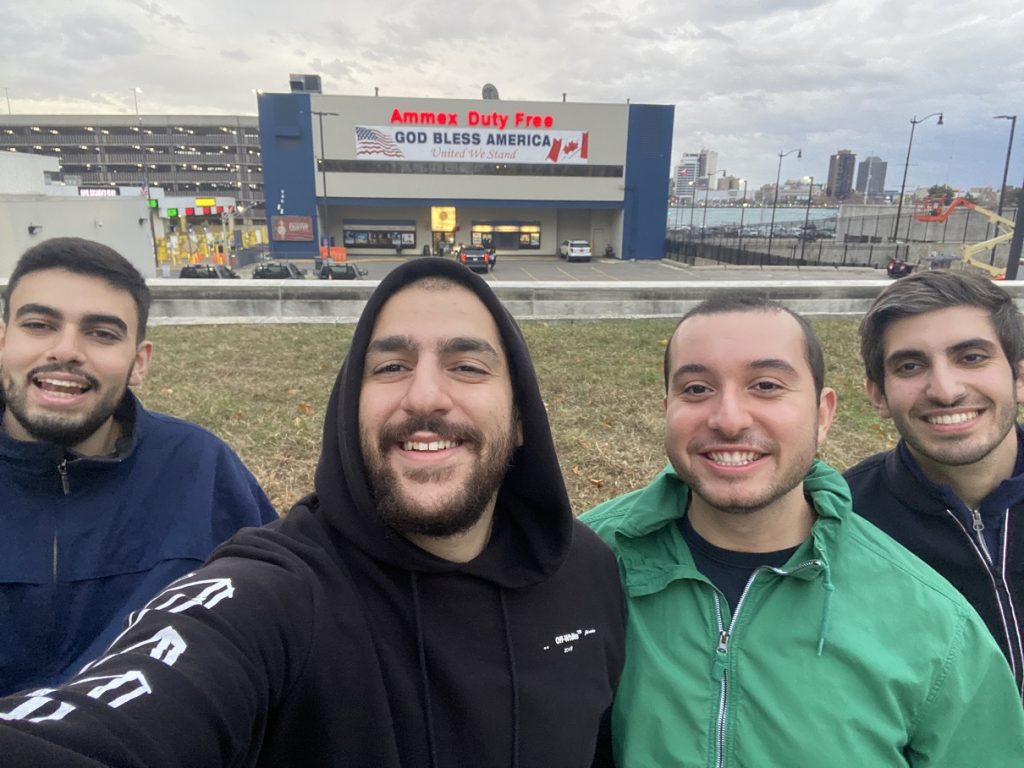
Metro Detroit is a place where the Arabic language, Middle Eastern culture, and Arab identity are commonplace, normal, and welcome, and where immigrants and their descendents in the diaspora can feel at home. Taking Arabic at Loyola as a heritage speaker has helped me to connect with my culture in the diaspora too. Although I was connected to my Lebanese culture through the spoken dialect and our customs, I was not able to read or write the language, and thus I was disconnected from the broader Arabic-speaking world. In Dearborn, I could read the signs in Arabic and I felt a sense of belonging–similarly to how my dad felt being a native speaker–because at that point I had taken Arabic classes at Loyola with Dr. Abbadi. Seeing Arabic script throughout the suburb was no longer strange, but deeply meaningful, even nostalgic. I was reminded of what it was like walking down the busy streets of Lebanon. Taking Arabic has helped me better connect with my heritage, as well as help me to contextualize my culture into the broader Arabic-speaking world.
While Dearborn is known to be the heart of the Arab community, Middle Eastern people of other ethnicities, the Chaldean people in particular, populate the East side. The Chaldean Community Foundation in Sterling Heights and Ishtar Restaurant beside it are popular places where they gather. Dream Market is a respected store in the community where one can buy Middle Eastern furniture, household goods, religious items, and all sorts of things that help one stay connected with their culture from back home. Across the street is my baba’s favorite restaurant to eat at in the Detroit area, Zarzour (food pictured above). There, one can order Arabic tea served in the traditional way, with the small glass tea cups. In the suburb next over is St. Charbel church, a recently built Maronite church where my baba likes to attend Mass since the priest and most of the congregation are Lebanese and speak Arabic. Those who wish to experience Middle Eastern Christianity can take part in liturgies in English or Arabic in the many apostolic churches throughout the Metro area. Chaldean, Maronite, Coptic, and Antiochian Orthodox churches are abundant and welcoming throughout the city.
Detroit is diverse in many ways, but it is also one big community. It is a city on the border. On the other side of the Detroit River is Windsor, Canada. Despite the border, the Detroit-Windsor area is unified by transnational business and a shared urban history. Canadians and Americans work alongside each other. Similarly, Chaldeans and Arabs and Christians and Muslims live alongside each other and coexist in one city, called to one place by the American Dream. The Middle East is a land of many imposed modern borders, but in Detroit and Windsor, people of Middle Eastern heritage (and people from other descents) from all sorts of national, ethnic, and religious backgrounds live together harmoniously.
My baba’s love for his culture (and his fondness for good food) brings him to Detroit, a 5 hour car ride from our home in Skokie, IL. I hope that you will appreciate Middle Eastern cultures wherever they exist, whether they are close to home or not, since these cultures are so often regarded as foreign and strange in this country, and not valued for their achievements and what great things they have to offer. I leave you with one piece of advice if you visit Detroit: go somewhere that has booza (ice cream) and order the kashta flavor (قشطة) with pistachio. Personally, I think the booza at Shatila is the best. You can also find kashta ice cream in the Chicago area at Melt n Dip locations throughout the suburbs. I strongly recommend you give it a try this summer. Thank me later. ☺

